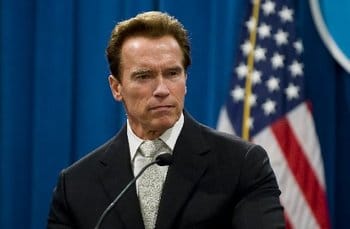Schwarzenegger's waning influence could impact ballot initiatives in 2010 elections


The legacy of Governor Schwarzenegger is still very much a work in progress. On the one hand, he can be counted as the first Governor of California since Ronald Reagan to come from Hollywood and yet still manage to formulate a gubernatorial philosophy – one which his supporters believe is more nuanced and intellectually coherent than the Gipper’s.
On the other hand, California has suffered some of the most debilitating fiscal woes in recent history under his watch, and as Republican Governors go, he stands as one of the few party leaders to inspire so little loyalty among the rank-and-file, often being grouped with the now-independent Charlie Crist.
Still, if his supporters and his detractors agree on anything, it is that Schwarzenegger has used California’s directly democratic system quite conspicuously as a political weapon, with varying degrees of effectiveness.
Which is why, come June and November, upcoming ballot battles involving Schwarzenegger or the state government, appear to show signs of strong political bloodletting. What is more, these battles seem to break down along similar contours, with each treating California’s system of direct democracy as an object of suspicion on par with intrusive state government, and sometimes even synonymously with it.
Witness, for instance, the fight over an initiative slated for the California ballot which would suspend Assembly Bill 32, a bill which sharply limits greenhouse gas emissions, and one that Schwarzenegger has often viewed as one of his key civic achievements.
Yet, as the Bellingham Herald reports:
Many firms did not support that change four years ago because they feared higher costs and now sense a chance to derail it as California struggles with a 12.6 percent unemployment rate. Contributors - mostly oil firms and a mysterious Missouri donor, the Adam Smith Foundation - have paid $1.9 million to gather signatures for an initiative to suspend AB 32. Another donor, entertainment magnate Haim Saban, has loaned $2 million toward a second initiative that would once again let state lawmakers draw political boundaries, defying the governor's previous efforts.
It does not take a trained eye to see the usage of Schwarzeneggerian (directly democratic) tactics to achieve ends opposed to the process. And given rising skepticism over the threat of climate change, as well as the copious amounts of money which can be devoted to the initiative in question, it is not impossible to envision the measure succeeding.
Hence, one of the great ironies of the 2010 election may be its exhibition of the power of the people to use Schwarzenegger’s own weapon of direct democracy to undo the legacy he has painstakingly crafted.
This is even more likely to occur at the point where the Herald also notes that “Fundraising has been a constant strength for Schwarzenegger, but he is a lame duck who has to find money for several fights. The governor already has tapped donors this spring for an open primary initiative on the June 8 ballot.”
Obviously, the implications this could have for the Open Primary initiative itself are not necessarily decisive, since it still commands a wide swath of public support, and Schwarzenegger’s name is not sufficiently unpopular to damage that level of support.
However, voters should be on the watch for further indicators of waning power on the governor’s part, especially as the election begins to come closer.



